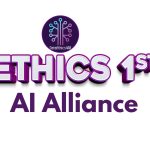
Press Release: World Economic Forum’s Responsible Use of Technology: The Salesforce Case Study
The responsible use of technology has become one of the most pressing issues of the Fourth Industrial Revolution. While innovation continuously brings great benefits to the world, it has also brought risks and harms.
In 2018, the World Economic Forum launched its Responsible Use of Technology project to help bring the worlds of business, civil society and government together to work towards solutions that will benefit everyone.
The project has taken a multi-pronged approach: conducting a survey of 99 Forum members and partners on the ethical cultures of their organizations, running multiple workshops led by major technology companies to share and gather feedback on their ethics programs.
We’re proud to have our Founder and CEO, Shilpi Agarwal an invite only member of the World Economic Forum’s Responsible Use of Technology project of the Fourth Industrial Revolution and an important contributor to this Case Study.
This case study in partnership with the Markkula Center for Applied Ethics at Santa Clara University, is the third one.
Two prior case studies published by the World Economic Forum’s Responsible Use of Technology project include:
1. Microsoft 2. IBM.
These case studies share corporate knowledge in technology ethics and responsible tech.
In this paper, Salesforce presents its experience developing The Office of Ethical and Humane Use of Technology and how it deepened its commitments towards ethics, responsible technology and social benefit.
It is our hope that will inspire others to incorporate ethics into their own organizations and thereby lead to more ethical decisions, more responsible technology and ultimately a better world.
The world is changing rapidly and is sparking challenges in many areas of human endeavor: international relations, government and politics, economics, education, healthcare, communications and media, transport.
We are all experiencing the accelerated development of technologies with immense social impact, in particular Artificial Intelligence, if these harms could be prevented, societies would be better off.
But what can be done to avoid these harms? One solution is to go right to the source, where new technologies are being researched.




